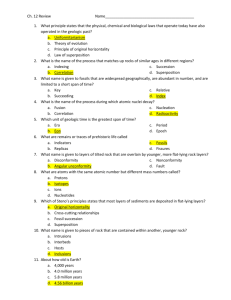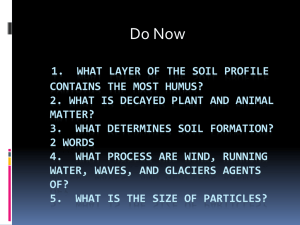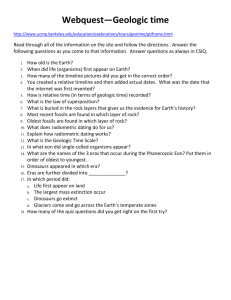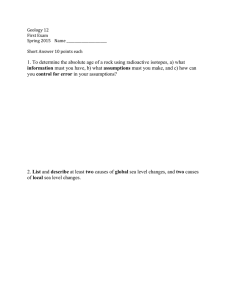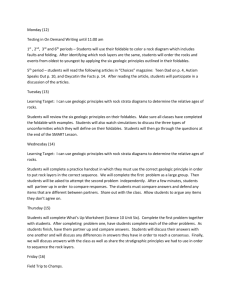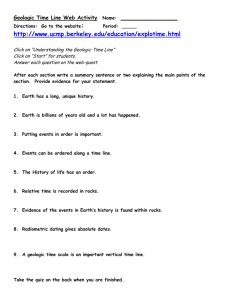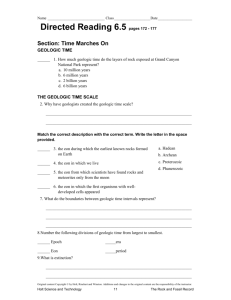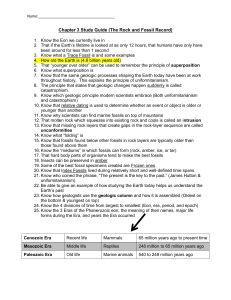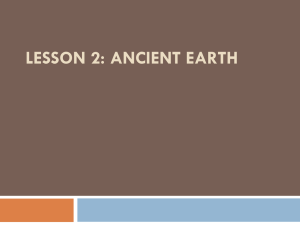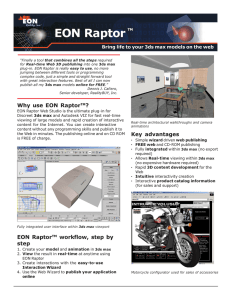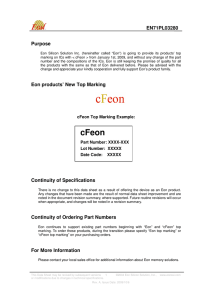Ch. 6 Study Guide Answers
advertisement
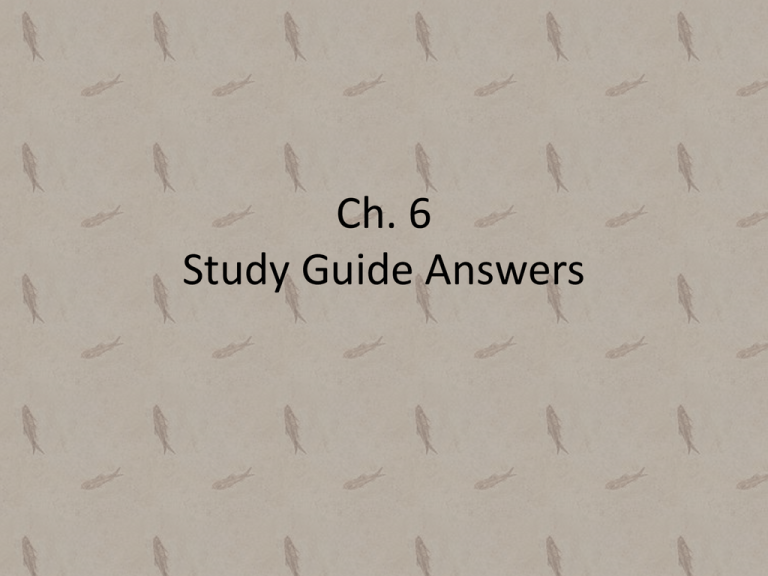
Ch. 6 Study Guide Answers • According to geologists, the Earth is approximately ________________. (how old) –4.6 billion years • Organisms can be preserved by ______________, a process in which minerals fill in pore spaces of an organism's tissues. –Permineralization • The principle of __________________ states that the same geologic processes shaping the Earth today have been at work throughout Earth's history. –Uniformitarianism • A(n) _______________ exists where sedimentary rock layers lie on top of an eroded surface of non-layered igneous or metamorphic rock. –Non-conformity • Which geologic theory does modern geology embrace? –Both uniformitarianism and catastrophism •Eras are divided into ________________. –Periods • Suppose you organize photos for an album covering the time period from your birth until your second birthday. No dates have been written on the backs of the pictures, but you are able to put your photos in chronological order by looking at changes in your physical appearance. This is an example of ____________________________. • Relative dating • What is an example of the superposition principle? –Tossing clothes into a laundry hamper • A(n) ________________ exists between horizontal rock layers and rock layers that are tilted or folded. • Angular unconformity • Insects can be preserved in _______________, or hardened tree sap. • Amber • ____________________ fossil specimens are some of the best preserved of all fossils. • Frozen • In which eon did the earliest known rocks on Earth form? • Archean eon • A ________________ provides valuable information about the habits and diets of the animals that left it. • Coprolite • Scientists often find rocks that contain marine fossils on mountaintops. What could such a discovery allow a scientist to conclude about how the position of the rocks changed over time? • The rocks were once below the surface of the ocean and were pushed up. • The largest divisions of geologic time are called ______________________ __. –Eon • A ___________________ is a cavity in the ground or rock where a plant or animal was buried. –Mold • The ___________________ is known as the Age of Reptiles. –Mesozoic era •In which eon do we live? –Phanerozioc eon • The phrase “younger over older” can be used to remember the principle of ___________________. –Superposition •In which eon did the first organisms with welldeveloped cells appear? –Proterozioc eon • Which word best describes the geologic column? –Ideal • The principle that states that all geologic change occurs suddenly is called __________________. –Catastrophism • What era ended with the largest mass extinction event in the Earth’s history? – The Mesozoic Era • What processes disturbed these rock layers? –Faulting • Which rock layers would have the same relative age? – 3 and 10 – 9 and 2 – 8 and 1
